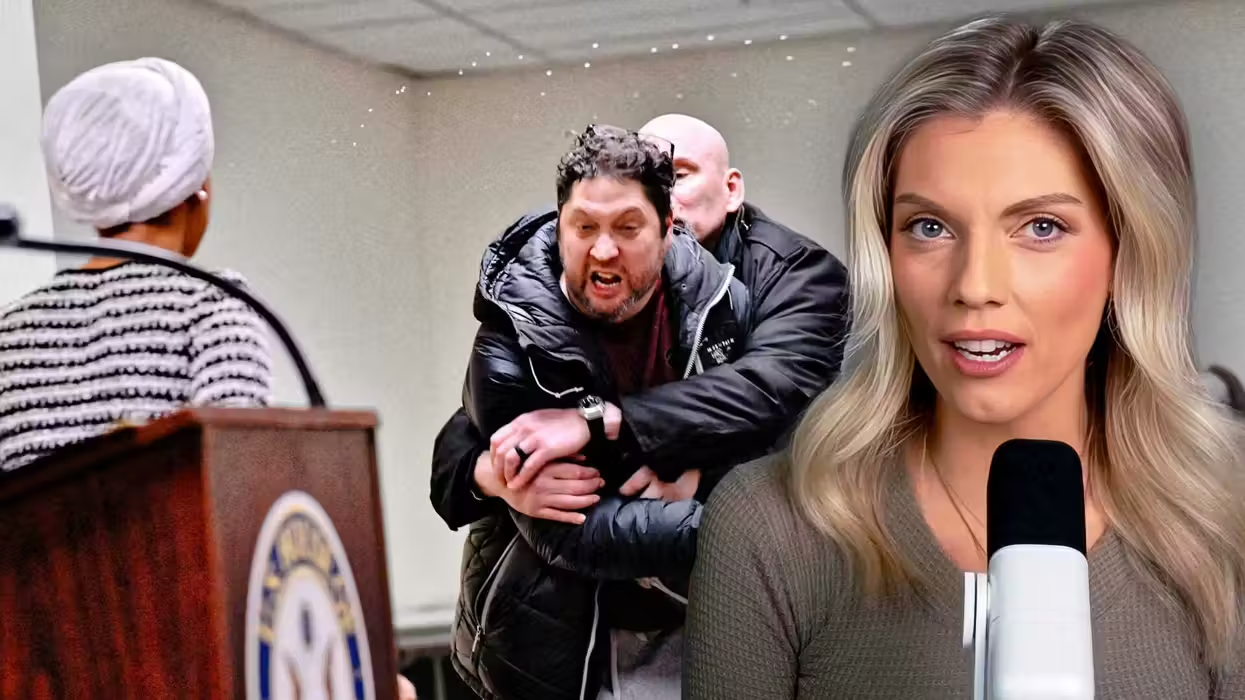
© 2026 Blaze Media LLC. All rights reserved.
Read the Scathing 41-Page 'Fast and Furious' Lawsuit Filed Against Eric Holder
August 13, 2012
"The family of Border Patrol Agent Brian Terry...and the public have a right to know the full extent of what occurred."
On Monday, the House Oversight and Government Reform Committee filed a 41-page civil contempt of Congress lawsuit against Attorney General Eric Holder, arguing that the Obama administration is required by law to turn over the subpoenaed documents that relate to Operation "Fast and Furious."
The House's legal action "seeks to obtain documents covered by the subpoena that will show why the Justice Department took ten months to retract a Feb. 4, 2011 letter which contained false denials of the reckless investigative tactics used in Operation Fast and Furious," the committee said in a press release.
"Portentously, the (Justice) Department from the outset actively resisted cooperating fully with the committee's investigation," the lawsuit said.
"Among other things, the department initially declined to produce documents; later produced only very limited numbers of documents in piecemeal fashion; refused to make available to the committee certain witnesses; and limited the committee's questioning of other witnesses who were made available," it said.
The failure of Holder to turn over the documents led to votes in June that held the attorney general in civil and criminal contempt of Congress. The civil contempt resolution led to Monday's lawsuit.
It is the first time in U.S. history that a sitting attorney general has faced contempt proceedings. Now, House Republicans want the federal court system to intervene and force the Obama administration to give up the documents.
"President Obama exceeded his authority by asserting executive privilege over subpoenaed documents related to the Justice Department’s cover-up of Operation Fast and Furious," Issa said in a statement Monday. "Waiting nearly eight months after the subpoena had been issued to assert a meritless claim of privilege, the President’s decision was a calculated political maneuver designed to stop the release of documents until after November’s elections."
House Speaker John Boehner also said in a statement Monday that "the Justice Department has left the House no choice but to take legal action so we can get to the bottom of the Fast and Furious operation that cost border agent Brian Terry his life."
The U.S. Department of Justice recently encouraged Ronald Machen, the U.S. Attorney for the District of Columbia, not to pursue the criminal contempt resolution against Holder, who happens to be Machen's superior. To be fair, the federal court system has not traditionally solved matters between two branches of government.
Preparing for this, the House also passed a civil contempt resolution so they could try to force the Obama administration to cough up the Fast and Furious documents via a court order following a civil trial. However, no criminal charges come out of civil court.
The House voted on both contempt resolutions just hours after President Obama asserted executive privilege over the documents in a last-ditch effort to keep them sealed. It was something that no one expected because the president has always maintained he knew nothing about Fast and Furious, therefore would theoretically have no reason to invoke executive privilege.
Specifically, the lawsuit asks that:
- The executive privilege claim by Obama be declared invalid.
- Holder's objection to the House records subpoena be rejected.
- The attorney general produce all records related to the Justice Department's incorrect assertion in early 2011 that gun-walking did not take place.
Historically, there are two main types of executive privilege. One privilege, for "presidential communications," only covers the president and the work of top aides preparing advice for the president.
The other, known as "deliberative process privilege," covers a much wider category of administration officials, even if they weren't working on something for the president specifically. Presidents are required to have a stronger argument to justify keeping secrets under this broader authority, which can involve documents they never saw or were even intended to see.
A federal appeals court has ruled that this broader privilege is easier for Congress to overcome and it "disappears altogether when there is any reason to believe government misconduct has occurred."
"After promising an unprecedented level of transparency, the President is attempting to expand the reach of executive privilege to obstruct the truth about the reckless conduct that contributed to the death of a Border Patrol Agent and countless Mexican citizens," Issa said Monday.
"The family of Border Patrol Agent Brian Terry, whistle-blowers who faced retaliation for exposing the Justice Department’s reckless tactics, and the public have a right to know the full extent of what occurred."
Holder had not responded to the lawsuit at the time of publication.
House Minority Leader Nancy Pelosi (D-Calif.) called the lawsuit "partisan" and a waste of taxpayer dollars in a statement on Monday.
She added the lawsuit "is a distraction from the urgent business before Congress: acting to create jobs and grow our economy. It is also designed to distract the Justice Department from its critical job of challenging state laws designed to restrict the rights of Americans to vote."
Take a look at the entire 41-page lawsuit against Holder here:
The Associated Press contributed to this report.
Want to leave a tip?
We answer to you. Help keep our content free of advertisers and big tech censorship by leaving a tip today.
Want to join the conversation?
Already a subscriber?
more stories
Sign up for the Blaze newsletter
By signing up, you agree to our Privacy Policy and Terms of Use, and agree to receive content that may sometimes include advertisements. You may opt out at any time.
Related Content
© 2026 Blaze Media LLC. All rights reserved.
Get the stories that matter most delivered directly to your inbox.
By signing up, you agree to our Privacy Policy and Terms of Use, and agree to receive content that may sometimes include advertisements. You may opt out at any time.







